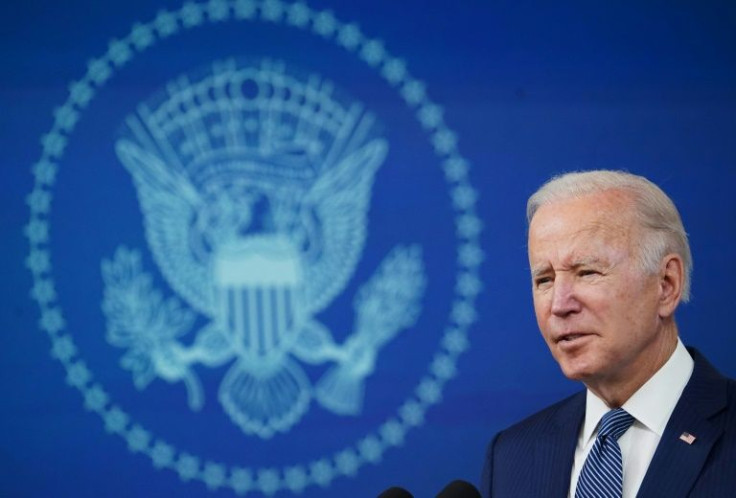Is The US Reasserting Global Leadership Position With Democracy Summit?

The invitation list for the upcoming Summit for Democracy in the United States indicates the superpower's attempt to reassert its global leadership position following the challenges it is facing from China and Russia.
The first-of-its-kind gathering of nearly 110 nations, taking place in the midst of geopolitical tensions among rival global powers and the pandemic COVID-19, is aimed at arresting democratic backsliding worldwide by building a coalition against threats to "international rules-based order."
The success toward a global democratic renewal rests in large part on the "year of action," requiring each participating nation to bolster democracy at home and abroad-and then execute the stated broad objectives of the summit-defending against authoritarianism, fighting corruption, and promoting human rights -- over the course of 2022.
If the summit is to be meaningful "each attendee, including the United States, will need to follow through on meaningful commitments" in the year ahead, Annie Boyajian, vice president for policy and advocacy at Freedom House, an NGO dealing with human rights and democracy, told Reuters in an interview.
Forging a common democratic front across technological, economic and military spheres is in line with US policy since January this year when Biden reversed the course set by his predecessor Donald Trump that saw the U.S. withdrawing from many of its international obligations.
The conference is not only about protecting democracy at home and abroad but also how open societies will have to react against existential technological threats by China and Russia who have invested heavily in artificial intelligence and quantum computing as part of weaponizing technologies.
After protesting its exclusion from the talks, China hosted a parallel democracy summit recently and launched two reports comparing state of democracy in China to the United States.
The Russian and Chinese ambassadors in Washington said that the United States has no right to pass judgment over which nations are democracies and which are not.
To China's dismay, Taiwan and Lithuania, facing Chinese military and economic coercion, have been invited to group of 111 nations.
Beset by increasingly aggressive Chinese military maneuvers, the democracy confab will give a chance to Taiwan to showcase its liberal polity and its vital semiconductor and high-tech sectors to normalize its direct on-the-table interactions with world leaders.
In Europe, a few nations are skeptical about embracing the return of U.S. global leadership. The popular European catchphrase "strategic autonomy" is all about the desire to free EU from the binary choice of leadership by US or China. Holland and Turkey are not included in the list though Poland found a place after much dilly-dallying.
Out of fifty-four African nations 17 -- just under one-third -- have been invited to the summit. The biggest problem of African nations is socioeconomic impacts of the coronavirus pandemic and limited access to vaccines.
Given that some East Asian countries, including Cambodia, Laos, Myanmar, Thailand, Singapore, and Vietnam, did not make the list, US allies like Japan and South Korea will have to take extra care to avoid causing a division among regional nations.
Apart from India in South Asia, the US administration has invited the Maldives, due to the Island nation's democratic renewal marked by the opposition's victory in the 2018 presidential election, as well as Nepal, which parted with the monarchy and held multiple elections since of the Maoist-led civil unrest in 2006.
But the administration has excluded Bangladesh, which has undergone serious democratic erosion since 2009, and Sri Lanka due to the island nation's poor human rights track record. Bangladesh is ranked 76th in the Democracy Index by Economist Intelligence Unit. Despite Pakistan occupying much lower slot in the index, at 105th, Islamabad is there at the summit due to geopolitical developments in Afghanistan, which has not been invited..
Representation from the Middle East is slim with the notable exception of Israel and Iraq, two vital allies of the US.
Many Latin American leaders, not even Brazil's pro-US president Jair Bolsonaro, are in a position to take the summit seriously, given the region's strong economic ties to China.
At the summit, strategic considerations are at play to crave up the world into "us" and "them" to address existential problems facing both the free and unfree world.





